Page 1 of 2 2025 AFTA AWARD RECIPIENTS DISTINGUISHED CONTRIBUTION TO FAMILY THERAPY Dr. Anne K. Fishel
Dr. Anne Fishel is the director of the Family and Couples Therapy Program at Massachusetts General Hospital and an Associate Professor of Psychology at the Harvard Medical School. She is a cofounder and executive director of The Family Dinner Project, a nonprofit group that works online and in person to help families harness the many emotional, nutritional, and social benefits of shared eating. She is the author of scholarly articles, chapters, and several books, including A Life-Cycle Approach to Treating Couples: From Dating to Death (2018); Home for Dinner (2015) and Treating the Adolescent in Family Therapy: A Developmental and Narrative Approach (1999). Dr. Fishel has been an innovative teacher-scholar-clinician advancing systemic, multidisciplinary training and practice for over 40 years. At MGH she trains child and adult psychiatry residents, psychology interns, and social workers in family and couple therapy. In 1991 she founded an interdisciplinary consultation/reflecting team group that has been on-going since then, serving as a community for junior and senior clinicians, while also serving of as an incubator of cutting-edge research. Dr. Fishel has won several teaching prizes. In addition, Dr. Fishel maintains an active clinical practice, and has devoted countless hours developing community education programs, including widespread use of social media. She speaks, consults, and publishes widely on a range of issues to do with families and couples: the benefits of family dinners, the impact of technology on the family, medical illness, marital conflict, the transition to parenthood, infertility, conducting a couple’s evaluation, and normal family development. In recent decades this includes talks in China, Saudia Arabia, Israel, and Lebanon. Her work has been featured in dozens of media outlets, including The New York Times, NPR, The Washington Post, The Wall Street Journal, CNN, Parents Magazine, and Time Magazine.She is an editor for the Harvard Review of Psychiatry and for Couple and Family Psychology, and is a long-term member of AFTA. Dr. Martha Laughlin
Dr. Martha Laughlin, is a licensed family therapist, AAMFT Approved Supervisor, and Program Director for the MS in Family Therapy Program at Valdosta State University, where she teaches systems theory and supervises therapists. Dr. Laughlin believes that creativity, although a vital facet of family therapy, is not frequently taught, so her first passion concerns the use of imagination and creativity in therapy and supervision. Her life-long challenge has been teaching students to think imaginatively with clients from within the structure of a clear, systems theoretical framework. With 30 years of clinical experience, Dr. Laughlin has demonstrated outstanding contributions in advancing systemic thinking and practice with families. Dr. Laughlin’s commitment to inclusion and social justice is woven throughout her teaching, writing, and professional contributions. Her systemic wisdom, intellect, and insights have inspired many therapists. She is known as an outstanding and dedicated scholar of excellent character and integrity. Her kindness and generosity of spirit is incomparable. Beyond her scholarly achievements is the impact she has on colleagues, students, and clients. Dr. Laughlin is well respected among colleagues and students and has made deep, long-lasting, meaningful, and positive impressions on all she encounters in the community. One therapist in training referred to her as "the best human being I have ever met." At VSU, Dr. Laughlin earned a college-wide honor that highlighted her incredible service, hard work, and leadership in the university and profession. Dr. Laughlin has published articles and book chapters on relational approaches to sexual abuse, dialogic practices in MFT education and training, hypnosis, creativity, and qualitative research, and presented numerous workshops and presentations at IFTA, AFTA, AAMFT, and NCFR national conferences. She has served as an editorial review board member for the Journal of Systemic Therapies for 15 years and was a co-managing editor for The Qualitative Report for 3 years. She has provided countless hours of mentorship to support the development of colleagues and therapists. Dr. Karen Quek
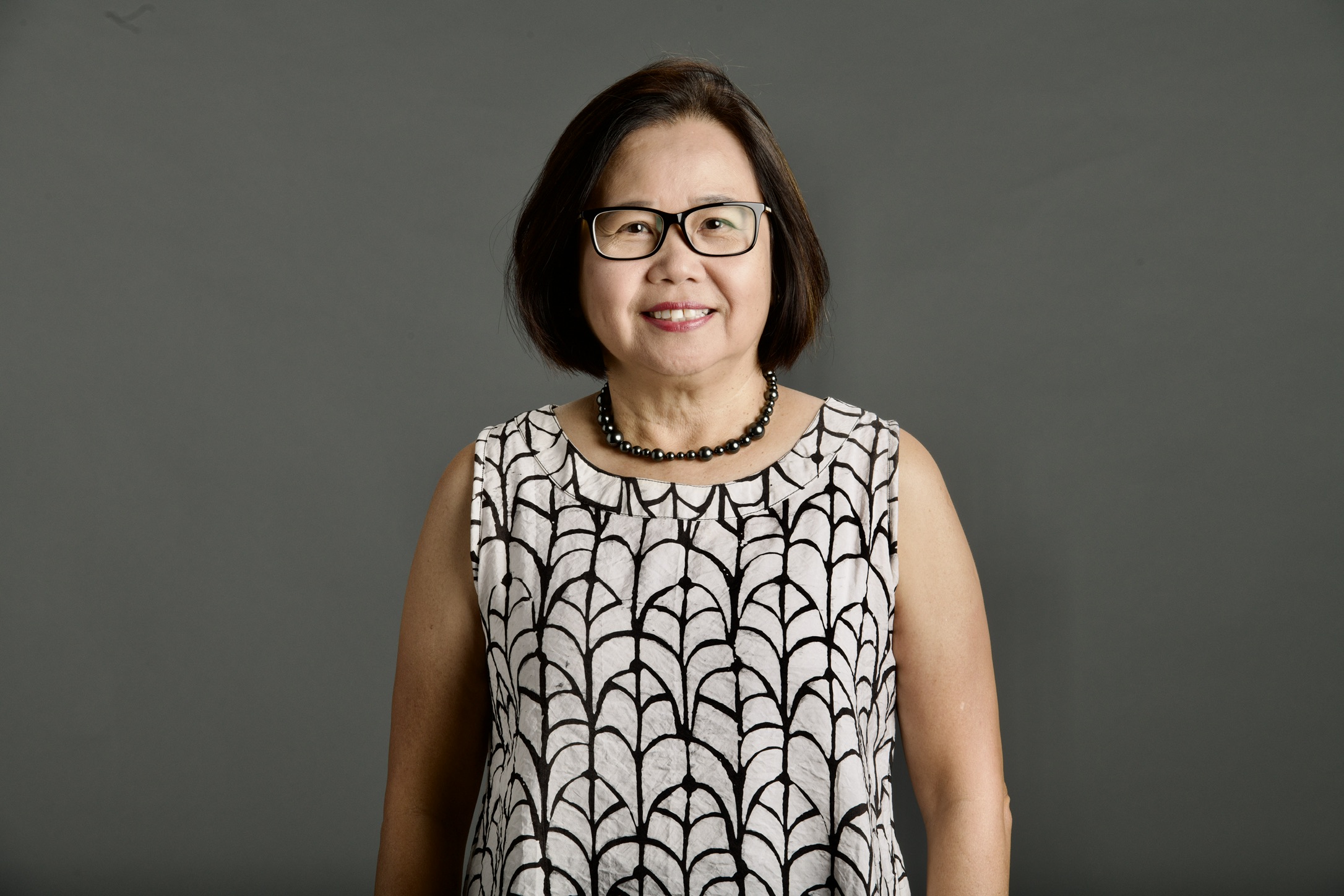 Dr. Karen Quek serves as the department chair and an associate professor within the Marital and Family Therapy Program at California State University, Dominguez Hills. Licensed as an LMFT and LPCC in California, she has over 30 years of academic and clinical experience. Dr. Quek has authored or co-edited two books and published extensively in international journals. Her research focuses on multicultural clinical practice, cross-cultural family dynamics, couples' relational dynamics, and intersectionality in family-therapy leadership. From her early years as a family and child counselor, supervisor, and government consultant in Singapore to her current position as MFT department chair at Dominguez Hills, Dr. Quek has been influential in working across cultural, social, and political boundaries to bring overlooked nuances and complexities to light. Her impressive list of publications and presentations (including 15 at AFTA since 2013) focuses on the real-life experience of couples, families, educators, and therapists as they navigate changing social terrains moment by moment, day by day. As illustrated in her two edited AFTA SpringerBriefs, “Intersectionality in Family Therapy Leadership: Professional Power, Personal Identities” and “Transition and Change in Collectivist Family Life: Strategies for Clinical Practice with Asian Americans,” Dr. Quek’s work challenges taken-for-granted binaries such as collectivist respect for hierarchy and harmony with egalitarian ideals grounded in an individualistic tradition or the tensions involved in fostering communities based on justice while also experiencing personal marginalization and discrimination. As evidenced in her promotion of systemic therapy and justice within many different professional associations and communities, including religious/spiritual communities, Dr. Quek is influential, in part, because she is willing to transverse potential conflicts, uncertainty, and vulnerability with an open heart and unwavering commitment to health, safety, and well-being for all families and to support for those dedicated to this work, so many of whom are students and families of color living within and across multiple social worlds. EARLY CAREER CONTRIBUTION TO FAMILY THERAPY Roua Eltayeib, LMFT
Roua Eltayeib, LMFT, is a therapist in private practice and the co-founder of the Social Services Department at MAS Youth Center. She specializes in culturally responsive care for individuals and couples, with a focus on identity, relational dynamics, and systemic healing. Through both her clinical work and grassroots organizing, Roua bridges mental health and community, ensuring that support is accessible, spiritually attuned, and grounded in the lived experiences of historically marginalized populations.
Somer Saleh, LMFT Somer Saleh, LMFT, is a therapist, educator, and community organizer whose work centers the intersection of mental health, faith, and community care. As co-founder of the Social Services department at a nonprofit Muslim organization, she integrates culturally responsive, systemic programming within Muslim spaces. In addition to her private practice and teaching at Mercy University, Somer works to expand access to holistic, inclusive mental health care, particularly for communities historically marginalized within traditional service models.
Somer Saleh and Roua Eltayeib are the actors/voices of the future of integrated family therapy practice in today's world. They have been working with the Muslim American Society (MAS), a national organization, and have led the Brooklyn and Staten Island branch’s mental health initiatives since 2020. They founded the Social Services department, the first of its kind within a Muslim community center and masjid, embedding systemic mental health practices into the fabric of the Muslim community. Their initiatives prioritize accessibility, inclusivity, and cultural responsiveness, ensuring that mental health care is both clinically sound and spiritually attuned. One of their most impactful efforts was organizing a Muslim Mental Health Fair, where they convened Muslim Mental Health Professionals from across New York State to connect with the community in person, provide culturally competent resources, and foster dialogue around mental wellness. This groundbreaking event was a major step in bridging the gap between faith and therapy, ensuring that Muslims seeking support could find professionals who understand their unique cultural and religious contexts. They have also led and facilitated workshops and presentations on substance use prevention and raised awareness about domestic violence through understanding religious and legal rights, recognizing abuse, and exploring how spirituality encourages and mandates caring for one’s mental wellbeing. Somer and Roua's work was also showcased at the 16th National Muslim Mental Health Conference in 2024, where they led a workshop focusing on how the Social Services department serves as a centralizing tool to bridge the gap between the Muslim community and mental health access through technology. Somer and Roua's work is not just about providing services, it is about transforming community narratives around mental health, fostering a systemic culture of care, and ensuring that no one has to navigate their struggles alone.
Dr. Eman Tadros
Dr. Tadros’ scholarship integrates both qualitative and quantitative methodologies, showcasing the efficacy of family services in correctional settings. Her research identifies key relational factors—such as communication skills, relational satisfaction, and social support—that influence relationship stability among incarcerated individuals and their families, and informs clinical interventions and policy recommendations to maintain familial connections during incarceration, contributing to social justice and health equity. According to Google Scholar, her publications have been cited 1,659 times. Dr. Tadros’ advocacy efforts include testifying for MFTs’ Medicare inclusion and supporting policies such as The Access MFTs Senate (SB 3211) and House (HB 5246). Beyond academia and clinical practice, she is actively engaged in social action efforts to enhance therapeutic resources for underserved populations, forming interdisciplinary collaborations with sociologists, psychologists, criminologists, social workers, and healthcare professionals to strengthen systemic approaches to justice-involved family therapy and promote equitable access to mental health services. It is also important to Dr. Tadros to include students in research and professional presentation, and she spends a significant amount of time explaining concepts to the students that work with her so that they are confident in their abilities and grow in their understanding. |

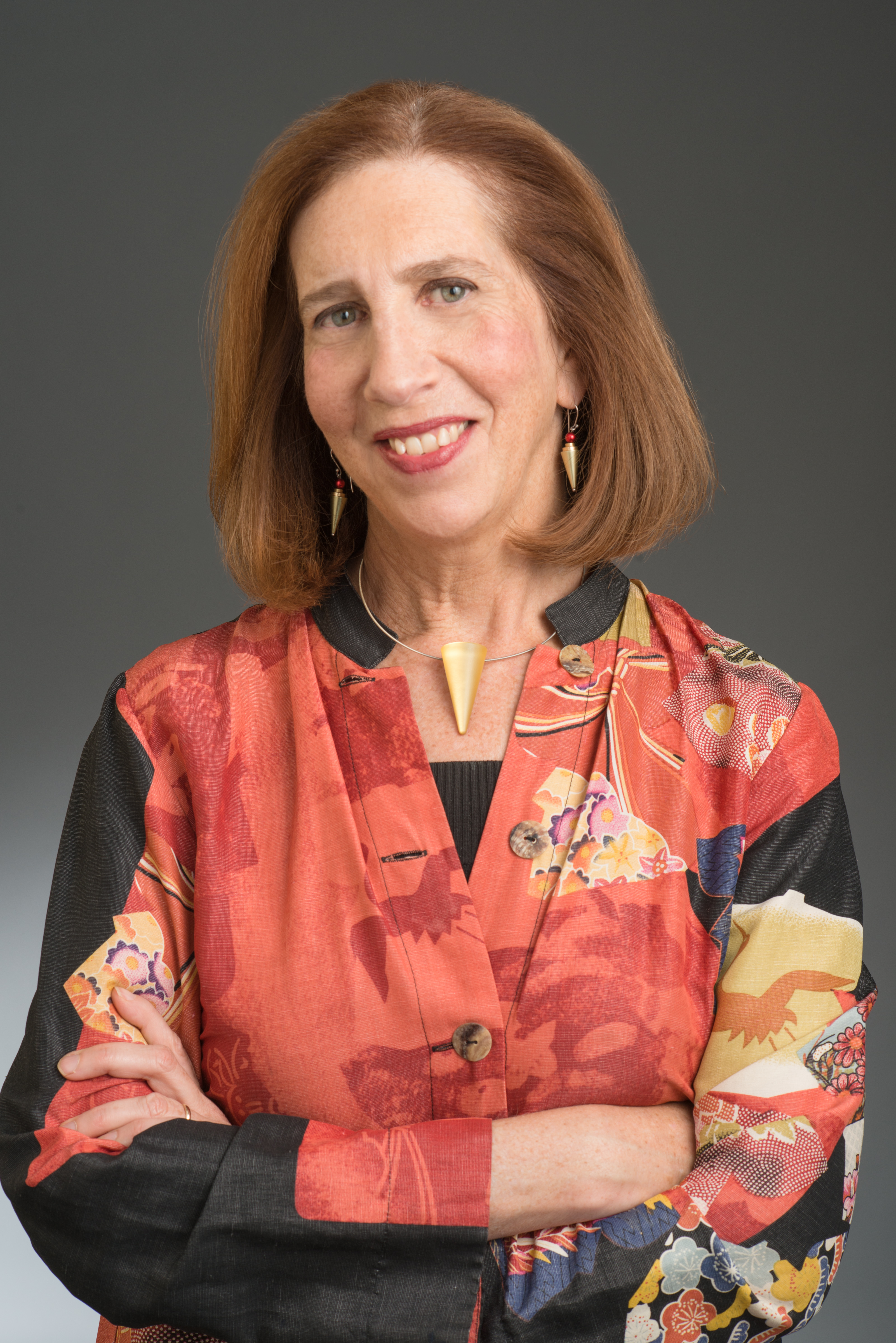

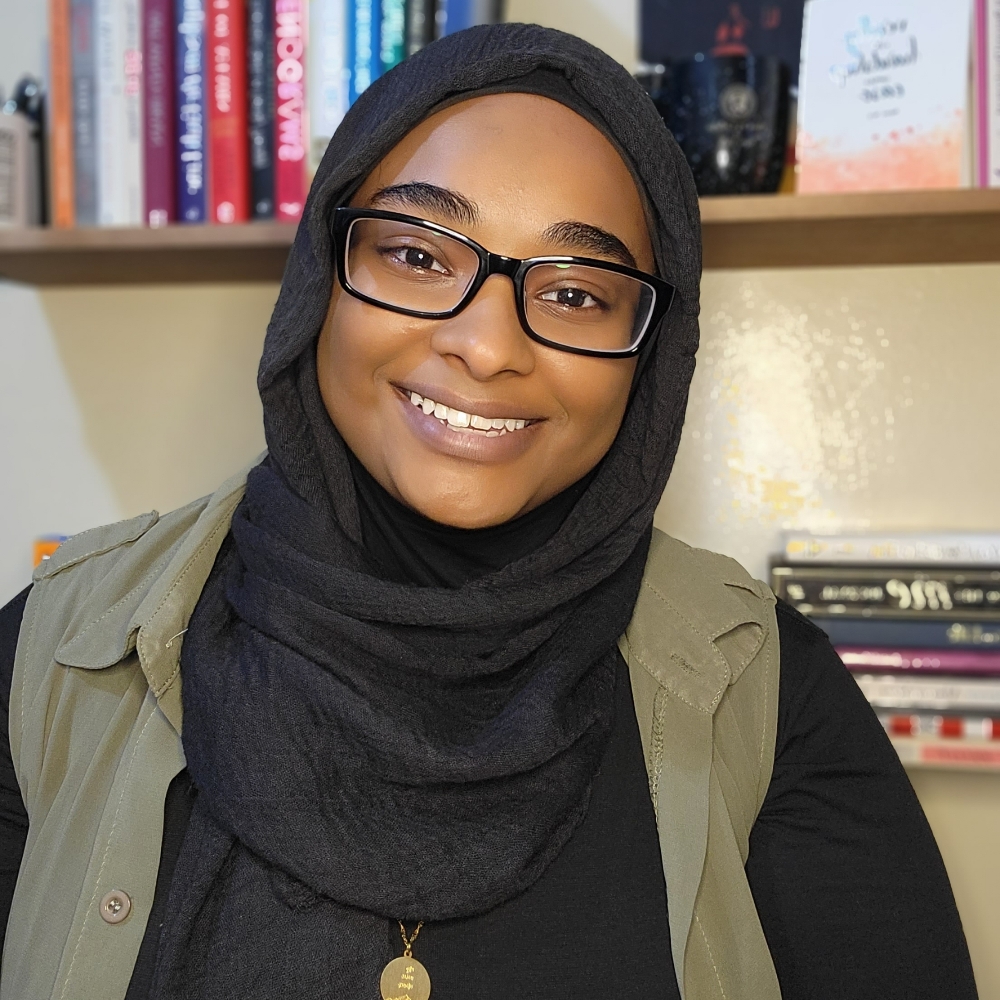
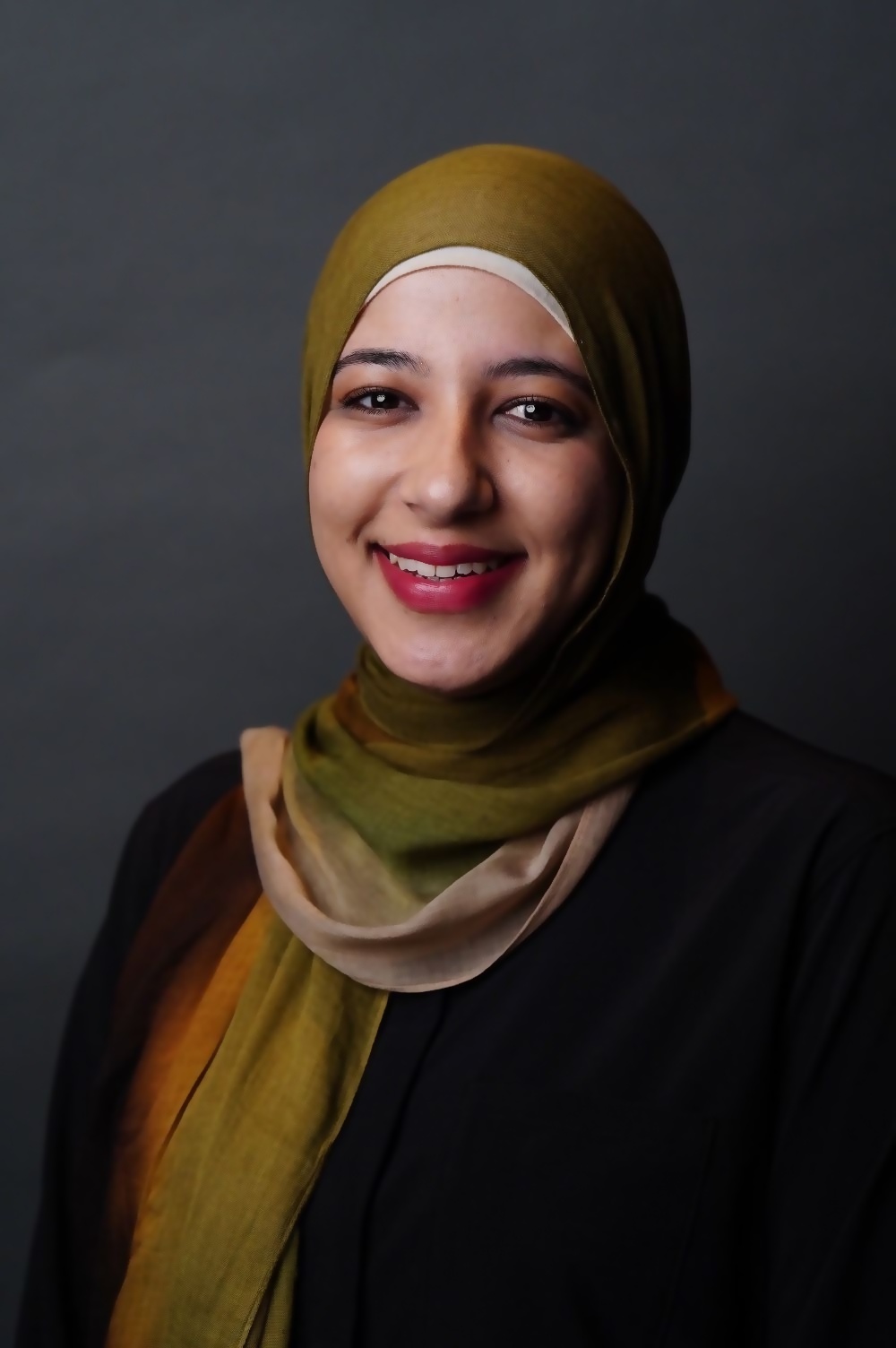
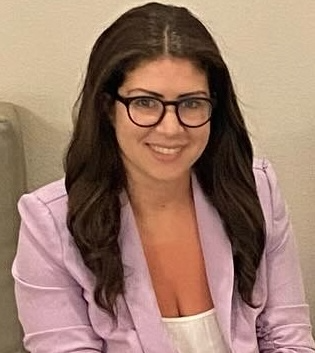 Dr. Eman Tadros is an Assistant Professor at Syracuse University in the Department of Marriage and Family Therapy. She is a licensed marriage and family therapist and AAMFT Approved Supervisor. Her research focuses on incarcerated couples and families, dating and relationships, and culturally informed treatment. She has published 150 peer reviewed journal articles and various magazines, blog posts, book chapters, op-eds, and policy briefs.
Dr. Eman Tadros is an Assistant Professor at Syracuse University in the Department of Marriage and Family Therapy. She is a licensed marriage and family therapist and AAMFT Approved Supervisor. Her research focuses on incarcerated couples and families, dating and relationships, and culturally informed treatment. She has published 150 peer reviewed journal articles and various magazines, blog posts, book chapters, op-eds, and policy briefs.